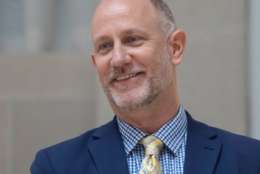Cybersecurity
-
Pentagon's new guidance tells testers to examine supply chain for electronic components, reduce 'check the box' mentality
May 15, 2018 -
The White House is considering two executive orders and lawmakers are adding provisions to bills trying to limit agency exposure to Chinese made technology.
May 14, 2018 -
Lawmakers are working to continue their efforts to protect the identities of feds endangered by the OPM data breaches, cut spending by $15 billion, and improve the online presence of federal agencies.
May 11, 2018 -
Artificial intelligence, a much-hyped trend in federal IT, is getting its own White House office, according to one of President Donald Trump's leading technology advisers.
May 10, 2018 -
On this episode of CyberChat, host Sean Kelley, former EPA CISO, discusses the Chinese military’s for-profit ventures with Joshua Philipp, an investigative journalist at the Epoch Times, which covers national security and politics.
May 10, 2018 -
Federal law enforcement agencies collect troves of data, but in the digital age, they're looking to make sense of more data in less time, in order to stay one step of their criminals they're looking to catch.
May 09, 2018 -
Federal agencies are under orders to configure their email systems to the domain message authentication and reporting conformance DMARC standard.
May 09, 2018 -
Not everyone is seeing an even distribution when it comes to women in federal IT. Some areas of technology remain a boys’ club.
May 09, 2018 -
Mike Olson, chief strategy officer at Cloudera, joins host John Gilory on this week's Federal Tech Talk to discuss agile software development, open source, and technical innovation in the federal government. May 8, 2018
May 07, 2018 -
Robert Toguchi at US Army Special Operations Command detailed the Army Special Operations Forces’ goals for 2035 and beyond.
May 04, 2018 -
OMB announced the comments could not be located in response to a public records request.
May 04, 2018 -
In today's Federal Newscast, a new report from the Energy Department's Inspector General finds the agency's Chief Financial Officer moved too much money over to the Electricity Delivery and Energy Reliability account.
May 03, 2018 -
Dan Conrad, the federal CTO for One Identity, makes the case for why agencies need to use two-factor authentication for 100 percent of all systems.
May 02, 2018 -
At the Homeland Security Department, the National Cybersecurity Protection System hasn't met all of its objectives for intrusion detection and information sharing.
May 02, 2018 -
Long-time DHS executive, Emily Early, will replace David Hess as the chief of staff for the National Protection and Programs Directorate.
May 01, 2018















